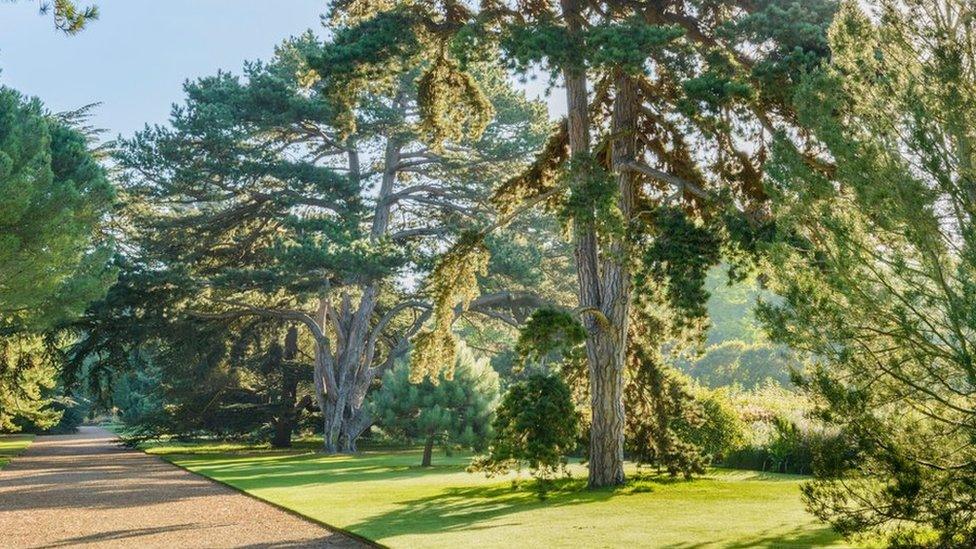Cambridge University plant collection 'most accessible in the world'
- Published
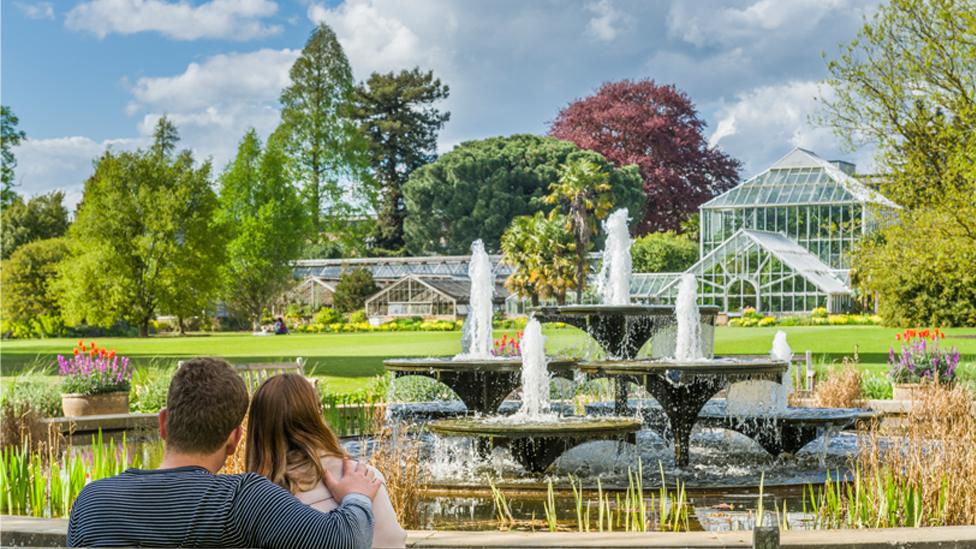
Cambridge University Botanic Garden said putting all the plants online was a mammoth task
A university's entire 14,000 plant collection has been listed online for the first time.
Academics at Cambridge University's Botanic Garden have created a searchable database which can be used for free by researchers and the public, external.
The "mammoth task" was already under way, but lockdown home working helped them "really get going on it".
Garden curator Dr Sam Brockington said it aimed to offer the "most accessible" plant collection in the world.
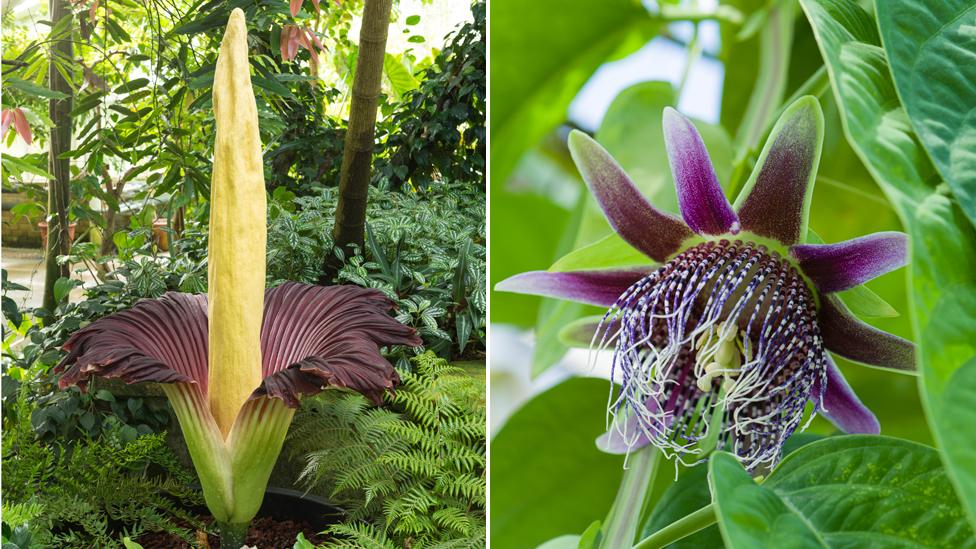
The titan arum (left) attracted huge numbers of visitors when it last bloomed
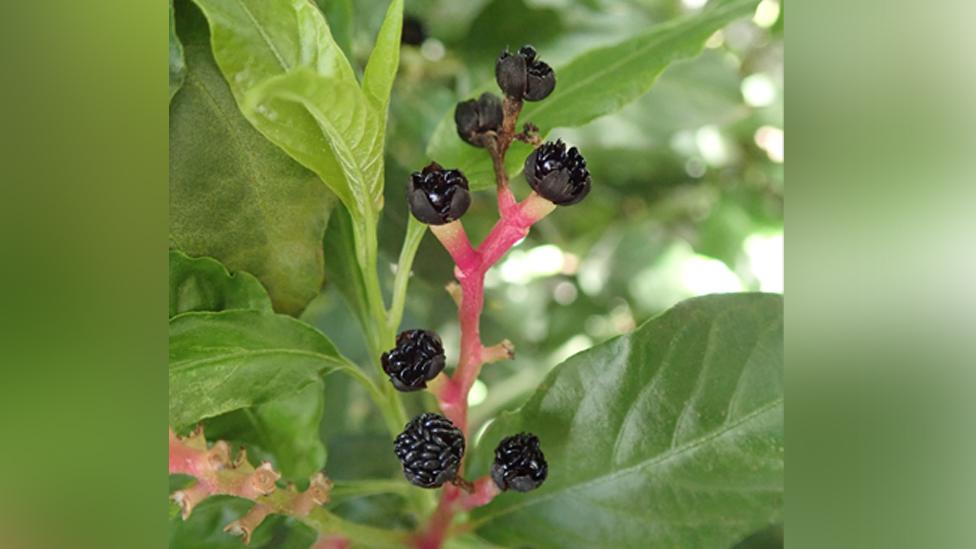
The pleuropetalum darwinii was collected in the Galapagos archipelago by Charles Darwin
The garden is spread across 16 hectares (40 acres) and includes 2,000 trees, ponds and Victorian glass houses which recreate seven climate zones.
Dr Brockington said: "We're never going to be the biggest collection in the world, but we're determined to be the most accessible and facilitate as much research as possible."
The University of Cambridge, external has had a botanic garden since 1762 and it moved to its current site 1846.
It is home to 8,000 plant species from all over the world, as well as offering resources for scientific research.
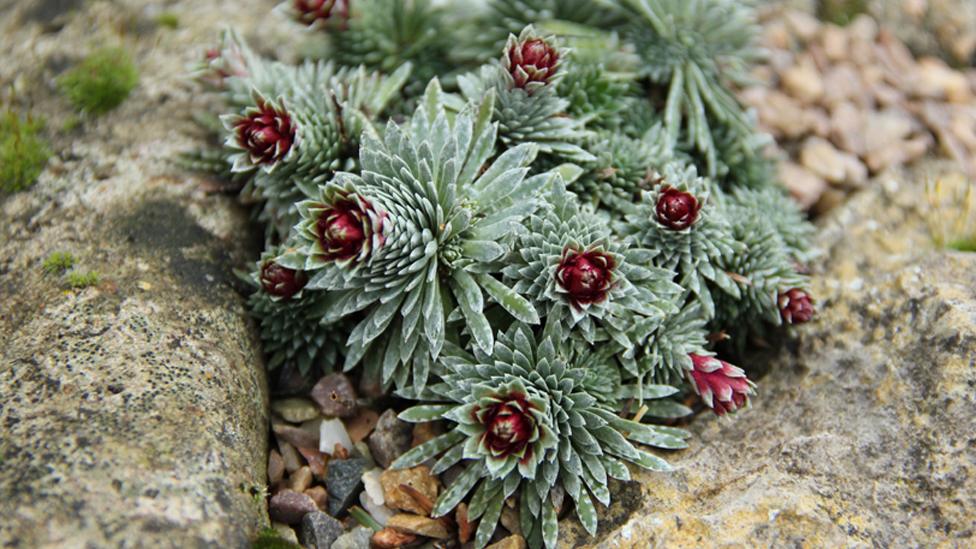
Saxifraga sempervivum contains vaterite, a compound rarely found on earth
Plants include the titan arum, which gives off a rotting flesh smell when it blooms, and specimens collected by the evolutionary biologist Charles Darwin while voyaging on HMS Beagle, external.
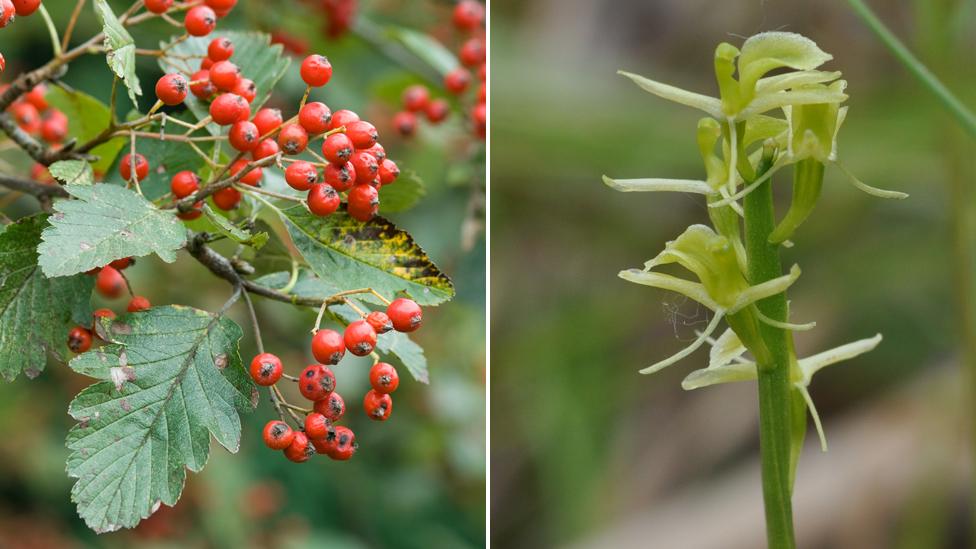
The collection includes rare native UK species the "critically endangered" Ley's whitebeam (left) and the locally threatened Fen orchid
The database is freely available to all, but only research scientists will be able to request material from the collection.
Dr Brockington said: "Having open access to strategically-planned collections of rare, wild and diverse plant material will help scientists better understand how plants thrive and survive."
A global assessment of botanic garden collections in 2017 discovered they contain about a third of all known plants and help protect 40% of endangered species.

Find BBC News: East of England on Facebook, external, Instagram, external and Twitter, external. If you have a story suggestion email eastofenglandnews@bbc.co.uk, external
- Published10 August 2020
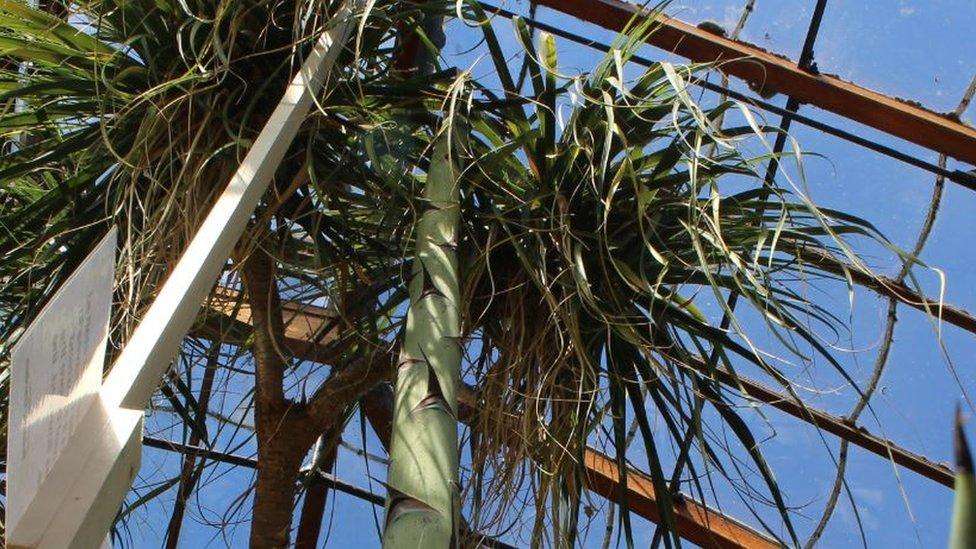
- Published22 December 2019

- Published1 January 2019
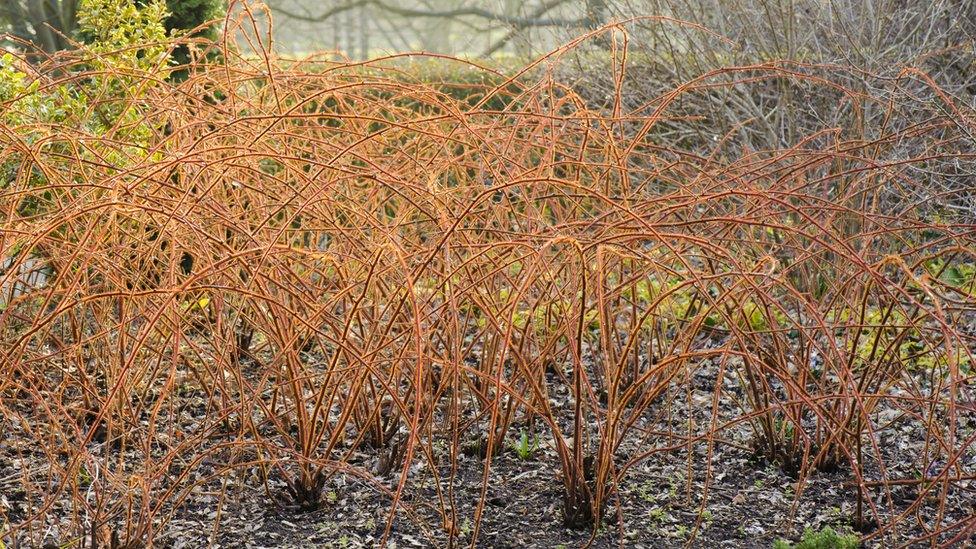
- Published26 September 2017
